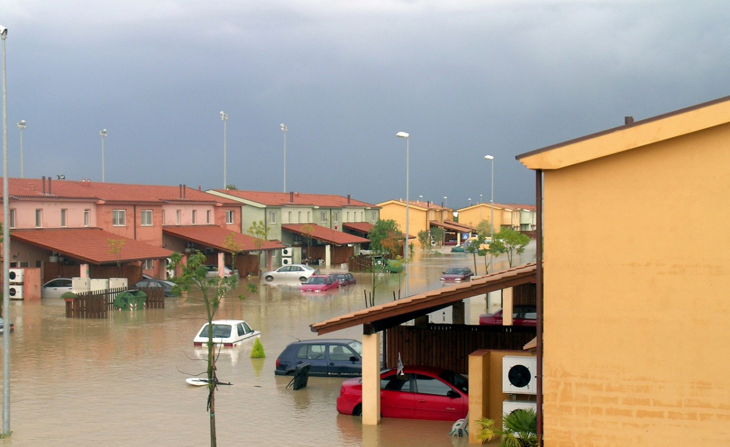 @Pixabay.
@Pixabay.
The past year’s high incomes are likely to have peaked and could begin to weaken.
This was the finding of a new Fitch Ratings report that analysed major European commercial insurers’ underwriting margins – finding that they would likely peak in 2024 and weaken thereafter.
“Price momentum was increasingly subdued in 2023 and is unlikely to be above claims inflation in 2024,” said Fitch.
“High underwriting losses caused by high claims inflation, insufficient reserving, and the pandemic have led to global price increases for 25 consecutive quarters,” said Fitch in the “European Commercial Insurers’ Profits to Decline After 2024 Peak” report.
It added that the market has corrected upward, with “very strong sector profitability” since 2021. “In 2023, this was supported by high underwriting margins and increasingly supportive investment income,” it said.
In the report, strong investment income was linked to the insurers’ high profitability, which was coupled with underwriting successes. Fitch concluded that Interest rate rises were beneficial for investment income.
"We assume that insurance companies will already have reaped the majority
of the benefit of rising interest rates by the end of 2024."
“Commercial insurers’ investment results are increasingly benefitting from the strong rise in interest rates since early 2022, and recurring investment income has improved significantly,” it said. “Negative fair value adjustments on major asset classes triggered by higher interest rates either slowed or reversed in 2023.”
Fitch also highlighted that, for many investors, high interest rates were “increasingly positive”. “Central banks’ response to record-high inflation rates in 2021 and 2022 led to a significant increase in interest rates, which has had a strong negative impact on insurers’ investment income,” it said. “While fair value losses across most asset classes depressed investment income in 2022, insurers reported a strong turnaround in investment income in 2023.”
The analysis noted that higher reinvestment yields, and strong equity markets supported earnings, in particular. “Considering the fixed income durations of approximately four to five years and the fact that interest rates have started to decline in 2024, we assume that insurance companies will already have reaped the majority of the benefit of rising interest rates by the end of 2024.”
However, these conditions also brought challenges.
One difficulty was the climate change-related costs to both underwriting and investments. “Climate change causes a structural rise in the frequency and severity of natural catastrophe claims for commercial insurers (physical risk),” said Fitch. “In addition, they may also sustain losses from the underwriting of, or investment in, corporates, whose business models might become economically unviable because of climate protection laws (transition risk).”
"Zurich has done the right thing by excluding new oil and gas extraction
projects and showing leadership on metallurgical coal.”
This situation was highlighted on Monday by an article in Bloomberg that said Zurich Insurance, one of Europe’s largest P&C players, would no longer underwrite certain carbon emitting areas, which could affect its profitability.
According to the Bloomberg story – no official press release from the company has been issued – Zurich declared that it will no longer provide new insurance underwriting for oil and gas projects. Last year, Zurich was one of the first companies to leave the Net Zero Insurance Alliance (NZIA).
The Bloomberg article added that the Swiss-based company “intends to mandate its highest-emitting corporate clients to implement strategies for reducing their carbon emissions”. Further details of the policy will be included in the insurer’s climate-transition plan, which will be announced later this year, said the piece.
The announcement was met with swift, if not universal, praise. The Insure our Future lobby group said, it worked with its Swiss member Campax in its official press release, and that it called on other insurers to follow suit adding that Zurich is the world's sixth biggest fossil fuel insurer.
"Zurich has done the right thing by excluding new oil and gas extraction projects and showing leadership on metallurgical coal,” said Nora Scheel, insurance campaigner with Campax. “If they aim to be the true leader in sustainability they claim to be, they now need to commit to fully phasing out oil and gas insurance and investments in line with a credible 1.5°C pathway."
Peter Bosshard, coordinator of the Insure Our Future campaign, said: "All big European insurers have now stopped underwriting new oil and gas extraction projects. AIG, Tokio Marine, and big Lloyd's insurers like Hiscox now need to move next.”
"The challenge is to limit investment or underwriting losses
while not endangering longstanding client relationships.”
Outside of Europe, few insurers have stopped investing or underwriting carbon intensive industries. With this lucrative area taken off the table for investments, the economics could begin to look worse, as Fitch noted in its report.
“Climate change transition risk affects the underwriting of commercial insurers, in particular, as well as their investments,” said Fitch. “Insurers may still invest in, or offer protection to, commercial clients whose business models might become economically unviable because of climate protection laws and regulation. The challenge is to limit investment or underwriting losses while not endangering longstanding client relationships.”
Fitch’s report said it believes that climate change transition risk can be contained more easily and quickly on the investment side than on the underwriting side, “which remains a far more complex task”.
“This also explains why major insurance groups’ net-zero emission targets are often more ambitious, timewise, for investments than for underwriting,” it said.
Overall, improved profitability will increasingly attract additional capacity, it said – leading to more intense competition. This, in turn, “will further slow price momentum, leading to a softening of the commercial insurance market in 2025”.